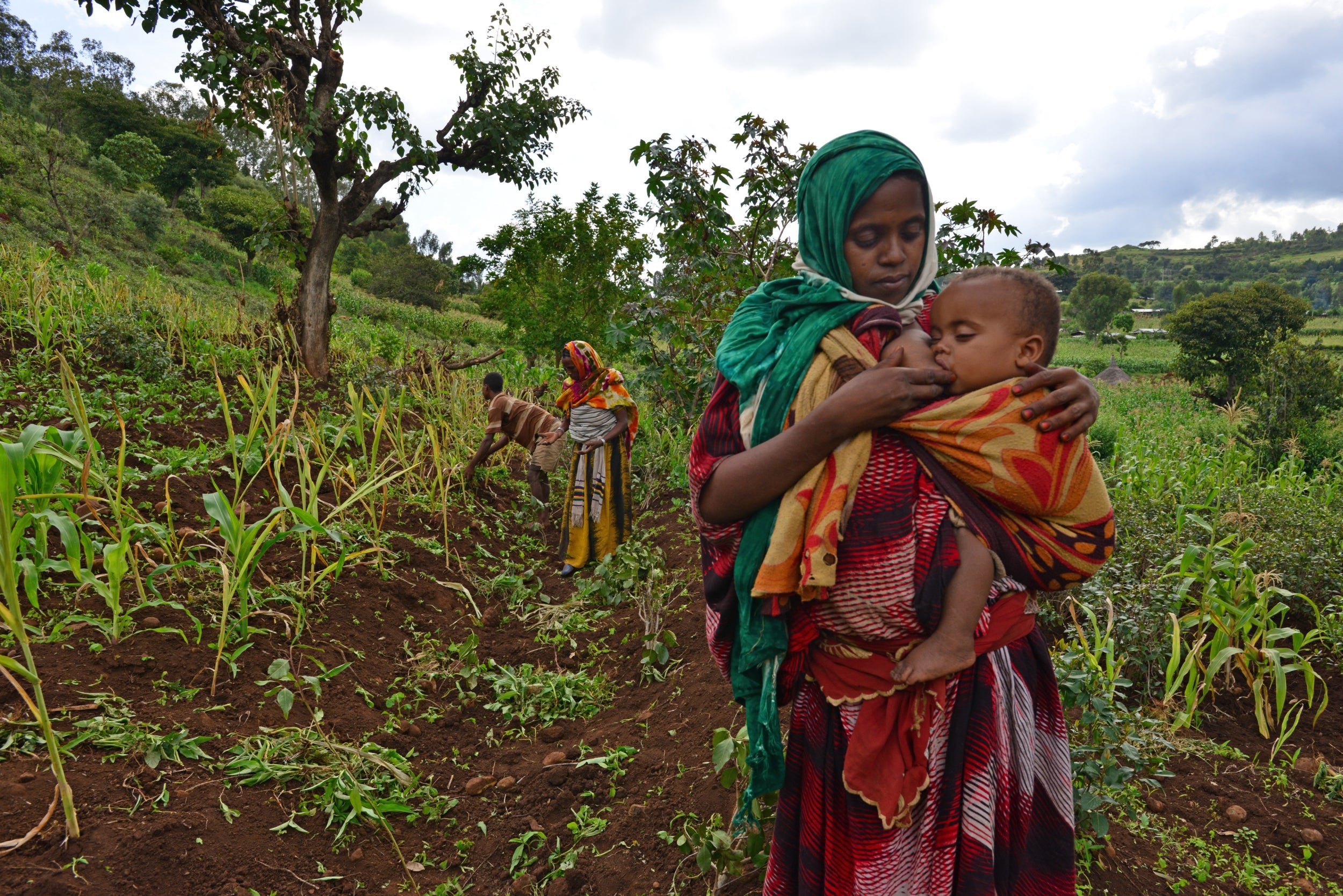For women in Africa there are signs of hope in the wake of Cop26 – but more work left to do
A problem as complex as the climate crisis cannot be straightjacketed into neat solutions – but progress is being made, writes Beatrice Atim Anywar


As is often the case with many of the past UN climate conferences, the recent meeting in Glasgow had been billed as humanity’s last chance. In the days after, dejection has been the common feeling. Flaws and loopholes are clear. But there was also some light – particularly for the women of my continent, Africa.
For one, the landmark agreement on deforestation must be chalked up as a win. Backed by $20bn (£14.9bn) in funding, it aims to reverse deforestation by 2030. Given their traditional role as primary caregivers, African women disproportionately feel the burden to provide food, fuel, and water and trees to feed the ecosystem upon which they rely.
Their roots reduce soil erosion and improve nutrient retention, lending a helping hand to farming. Forests can play a critical role in cloud creation – and so rainfall – with obvious ramifications for drinking water and agriculture. During storms and heavy downpours, they help filter and process rainfall, preventing flash flooding. This too is important for women: natural disasters are not felt evenly – more women are displaced than men, and girls are more likely to be pulled out of school to help their family. Though forest cover has been healthily growing in my country in recent years, it is still below our target of 24 per cent coverage – equal to the 1990 levels.
The “Glasgow Leaders’ Declaration on Forests and Land Use” may be a small gain when compared with the current projections that see temperatures rising to unacceptable levels. But we must not let the disappointment overtake us. Cop conferences remain our best hope to see progress in climate action, and wins like deforestation, a separate accord on methane, and a now yearly ratcheting mechanisms for nations to raise their emissions commitments must be registered as progress. Without taking momentum from such steps, we will not be able to progress some of the thornier issues as we look ahead to Cop27 in Egypt.
Foremost is climate financing. It has always been top of the agenda for countries most vulnerable to climate change with little means to protect themselves. Though there was progress, developed nations that have grown rich from fossil fuels have failed to meet the deadline of their own $100bn (£74bn) funding target.
Worryingly, this is only the minimum needed to meet the challenge of the climate crisis and must now rise further to keep pace with change. Even more worrying is what the current funds go towards: mitigation far outstrips adaption. Mitigation projects are those that reduce greenhouse-gas emission. Despite Africa contributing just 4 per cent of global emissions, over two-thirds of funding go toward reducing them. Yet the continent remains the most vulnerable to the adverse consequences of the climate emergency. Temperature across the continent outpace global average. Arid regions – such as the Sahel – are rising further still. Adaption to cope with this uncertain future is what Africa really needs.
Better irrigation systems help combat a falling water table and underpin food security. Better systems to certify seeds could help with the spread of drought resistant crops. Even better roads help humanitarian response in the wake of natural disasters. All will help African nations cope with the effects of climate change.
What explains the dearth of investment? Perhaps difficulty in measurement. Calibrating the impacts of any of those projects on resilience is difficult – unlike a renewable project’s simple megawatt calculations (and, as often is the case, returns for the fund providers).
But a problem as complex as climate change cannot be straightjacketed into neat solutions. We must think bigger. And stringent restrictions on measurable returns or outcomes is out of touch with the realities of fighting climate change.
Some funds will also need to be filtered through African government budgets as part of state spending. Only then will they have the coordination and scale for genuine resilience transformation, rather than creating a patchwork of piecemeal projects. Delay will only hurt those most vulnerable. The climate crisis affects women disproportionately because it deepens existing inequalities. Given Africa is the continent most vulnerable to climate change, this puts its women at the sharpest end of the global phenomenon.
At next year’s Cop – Africa’s Cop – we must ensure we carry the momentum forward of what we’ve achieved at this year’s meeting if we are to truly overcome these imbalances.
Beatrice Atim Anywar is Uganda’s state minister for environment. She is known within Uganda as ‘Mama Mabira’ for leading a successful nationwide campaign to save the country’s tropical Mabira Forest from commercial deforestation
Join our commenting forum
Join thought-provoking conversations, follow other Independent readers and see their replies
Comments
Bookmark popover
Removed from bookmarks